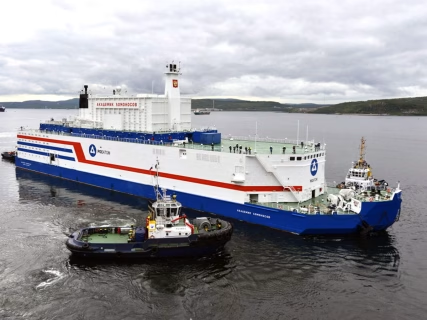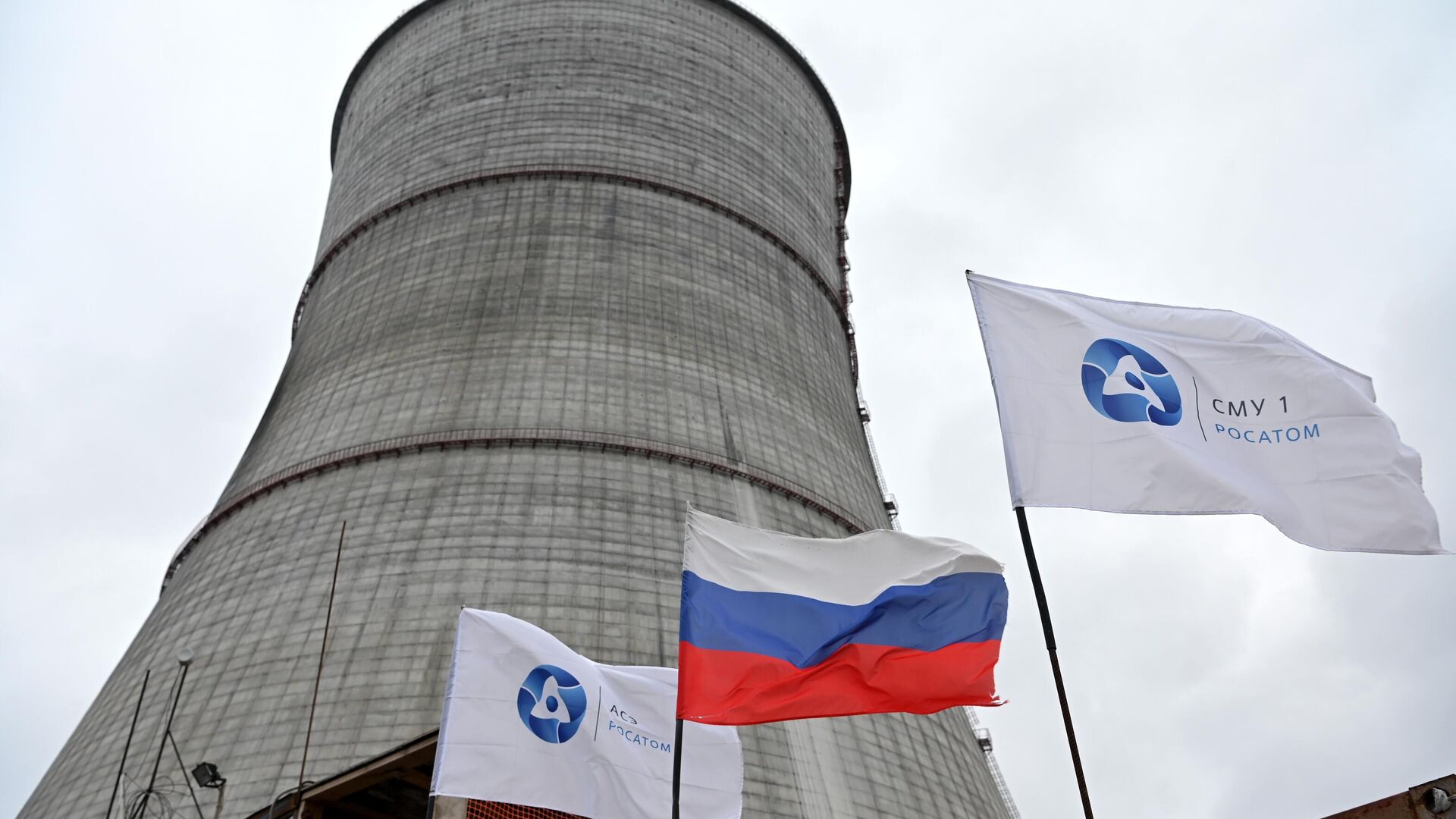The development of floating nuclear plants in Guinea emerged from a memorandum of understanding signed between the west African country and Russia’s state-owned nuclear energy corporation, Rosatom. This agreement outlines the intent to explore the deployment of sea-based floating power units, which are essentially barges equipped with nuclear reactors, to supply electricity to the West African nation.
These units, which would likely utilize the RITM-200 reactors that have been proven in Russian nuclear icebreakers are promoted as a fast, reliable, and environmentally-friendly solution to address the urgent power supply issues in the region. Rosatom’s business model involves deploying these plants and selling the generated electricity via long-term Power Purchase Agreements (PPAs), with the floating units remaining the property of the Russian company, thus minimizing the initial capital investment required from Guinea.
The nuclear power race in Africa is rapidly gaining momentum, with countries such as Egypt making big steps towards nuclear power development. In what Egypt is celebrating as a big milestone, the country’s El-Dabaa Nuclear Plant has just installed its first nuclear reactor.

Reported on June 15, 2024
Russia and the Republic of Guinea are set to partner on one very ambitious nuclear project in the West African country, the establishment of Guinea Floating Nuclear Power Plants. The two counties signed a memorandum of understanding at St. Petersburg International Economic Forum (SPIEF) to this effect. Recently, Russia has initiated a good number of nuclear projects in the African region, which includes the construction of the unit of the Dabaa nuclear power plant in Egypt.
Even though the details regarding this ambitious project remain to be scarce, according to a report written by the Russian newspaper Sputnik, indicates that Russia and The Republic of Guinea have signed a memorandum of understanding (MOU) on an ambitious nuclear project that will be located in the West African country.
According to a statement that was issued by the Russian energy corporation Rosatom, both Russia and Guinea seek to embark on an endeavor that will foresee the construction of floating nuclear power plants.
What is a Floating Nuclear Power Plant?
“A floating nuclear power plant is a site that comprises of one or more nuclear reactors, that are located on a platform that is at the sea. It is usually one autonomous site that is able to provide both electricity and heat to areas that are hard to access. Additionally, it is also able to provide drinking water to areas that are dry, by the implementation of desalination techniques.” This is according to Foro Nuclear.

Devlopers of the Guinea Floating Nuclear Power Plants
As revealed by Rosatom in a statement, both parties will be responsible for studying the possibility of the implementation of the floating power units project in the Republic of Guinea within the framework of the agreement that was reached and will also work out both the terms and conditions of the upcoming nuclear project.

This could be a part of the bigger strategy of Russia which involves strengthening its ties with its allies in Africa.
Back in the month of March, it was just reported that Burkina Faso and Rosatom were also on the verge of finalizing a nuclear deal. Both of the parties were in the process of signing a road map that would foresee the construction of a nuclear reactor in the West African country.
This came after the work on the fourth unit of the Dabaa nuclear power plant in Egypt which commenced in January. The president of Russia Vladmir Putin and his Egyptian counterpart Abdel Fattah al-Sisi launched officially the construction of the nuclear power plant project.
Other African Countries that are Part of the Russian Nuclear Endeavor in the Region
As recently noted, Rosatom has embarked on a big mission of penetrating the African market, provided the economic potential of the continent, and has already cemented relations with quite a number of countries which include Mali, Zimbabwe, and aslos Burundi. Moreover, Nigeria is also in this mix, having commenced its ambition to be a part of the BRICS group of nations and partner in nuclear energy projects with Russia.
In a recent report that was revealed, both Russia and Nigeria are implementing direct steps that will ensure this nuclear partnership program and also train individuals. Both the Nigerian Atomic Energy Commission and Rosatom are working hard to speed up this process.
Moreover, Tanzania also showed interest in bringing in the nuclear technology of Russia to bolster its economy. The minister for minerals in Tanzania, Doto Biteko, made an announcement on the “Cooperation in Science and Tecnology “ panel discussion on the “Nuclear Technologies for Developing the African Region”. This revelation was a surprise to many stakeholders as the East African country had been secretly setting up the framework for its ambitious nuclear plans.
In the year 2019, Rwanda also reached a deal to set up nuclear plants in partnership with Russia’s Rosatom which brought about widespread resistance on the basis of safety concerns.
Lastly, representatives of Rosatom signed a deal with the state officials of Uganda in the year 2016 to construct a nuclear facility, unfortunately, the project was not implemented.
1000 Megawatts Kenya Nuclear Power Plant Construction to Commence in 2027
